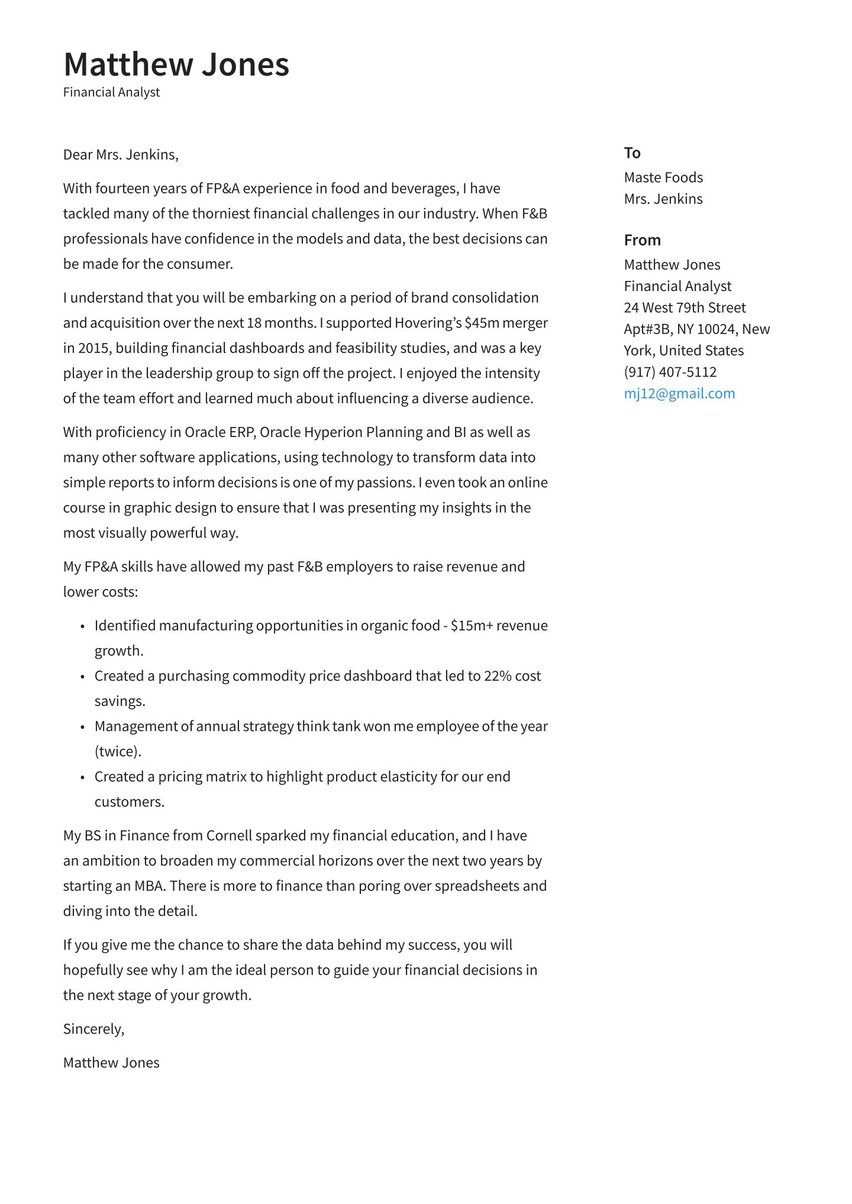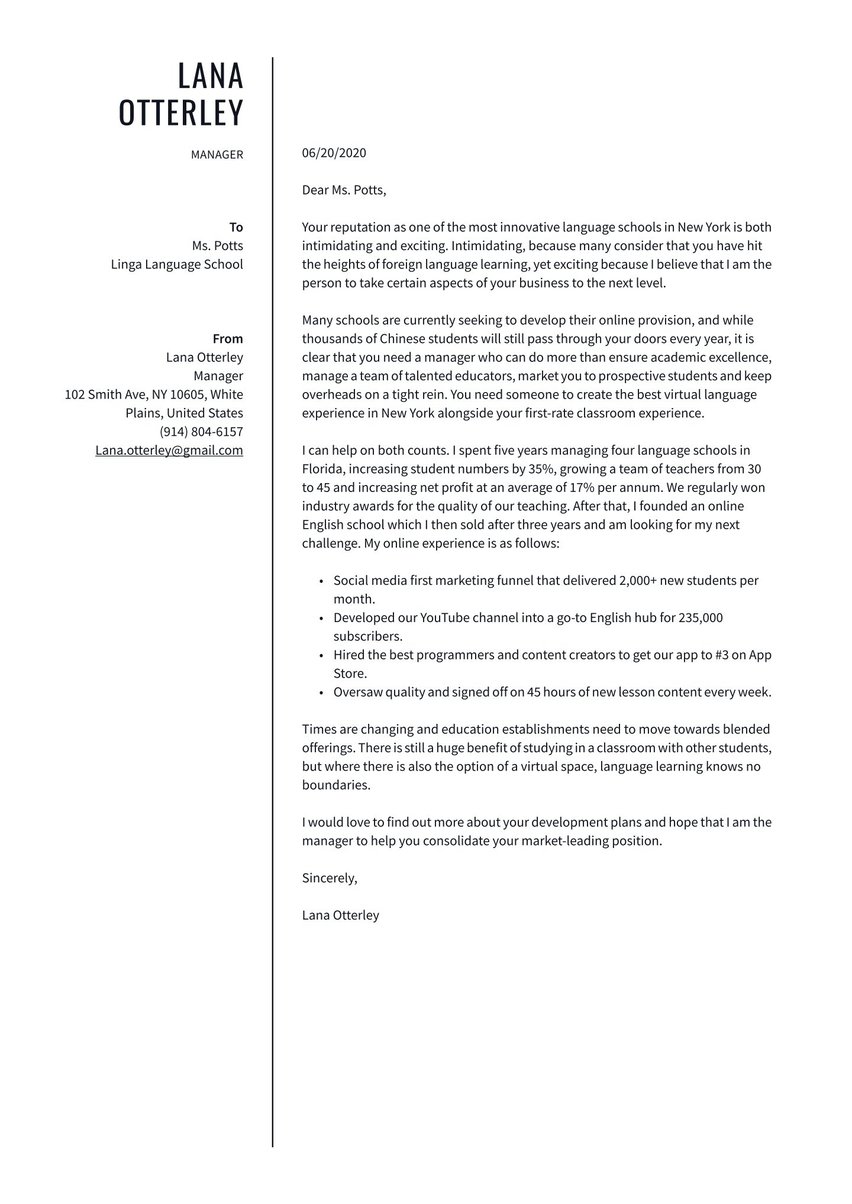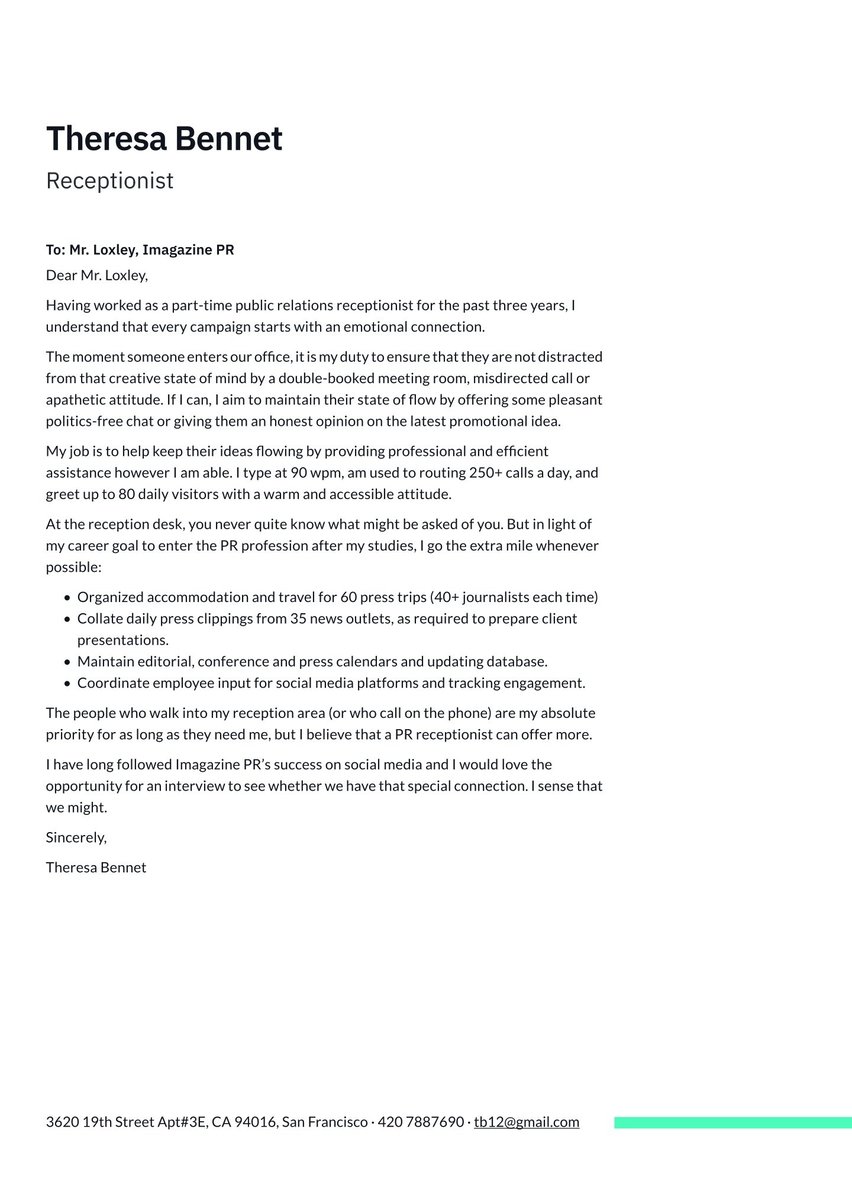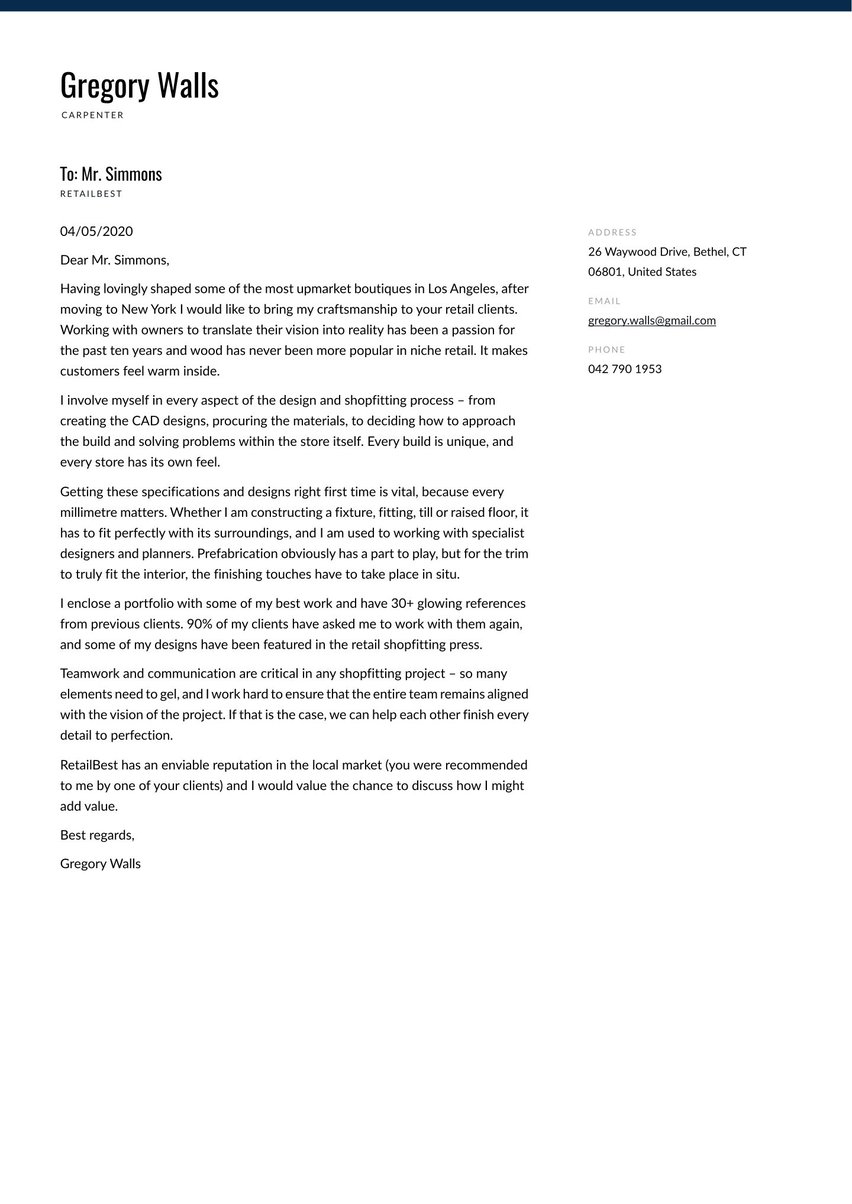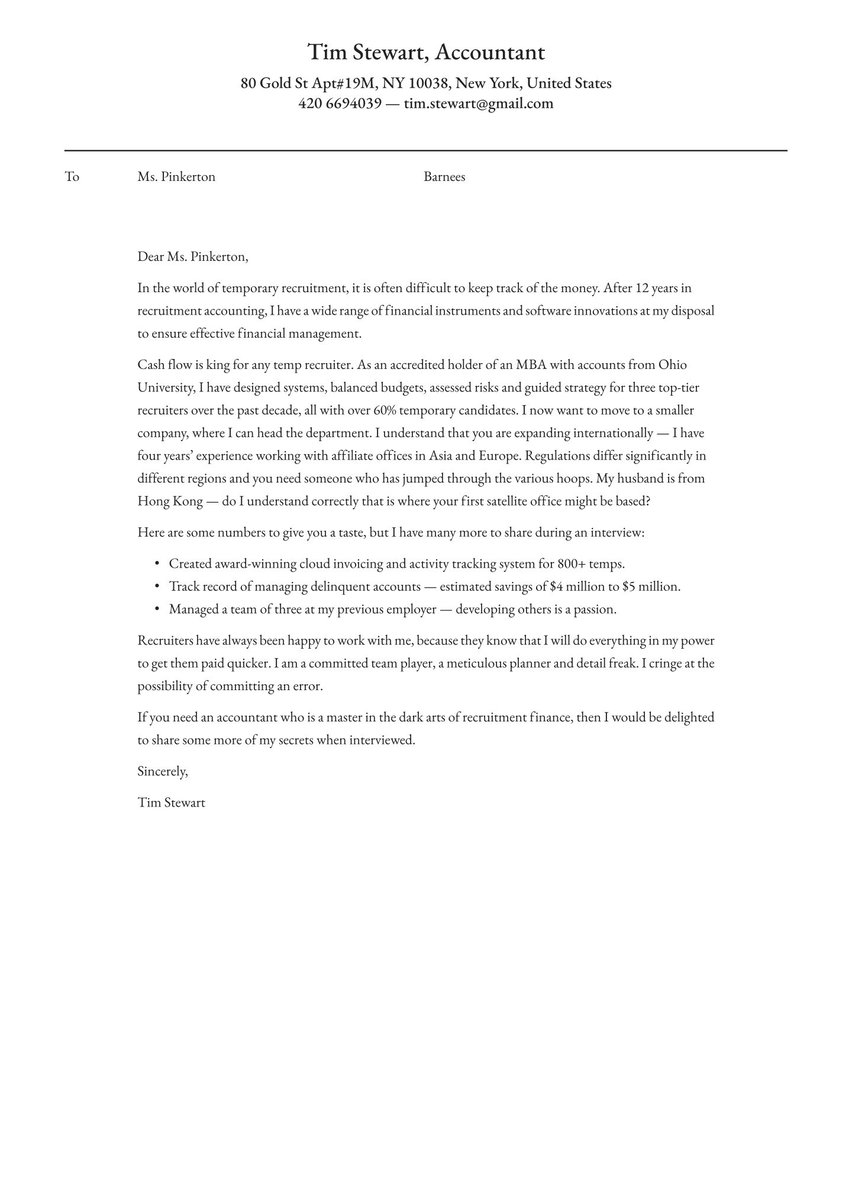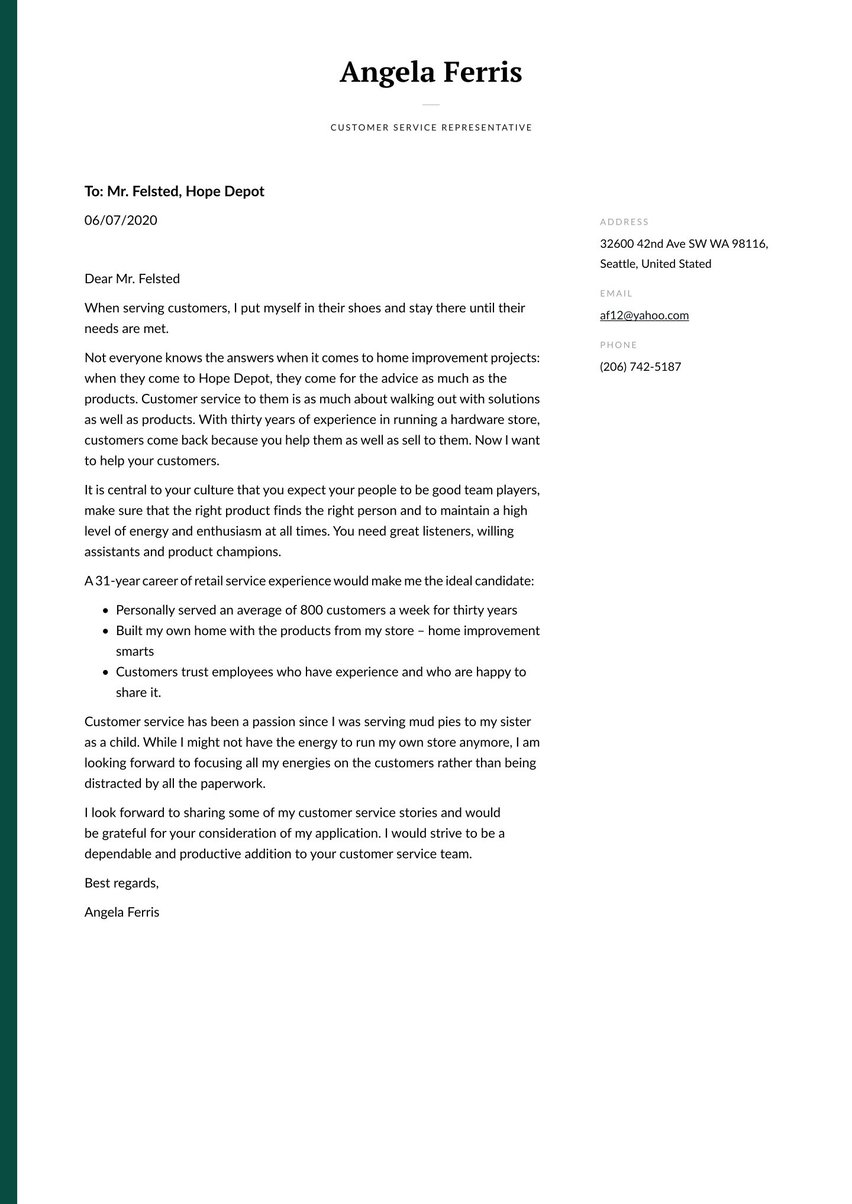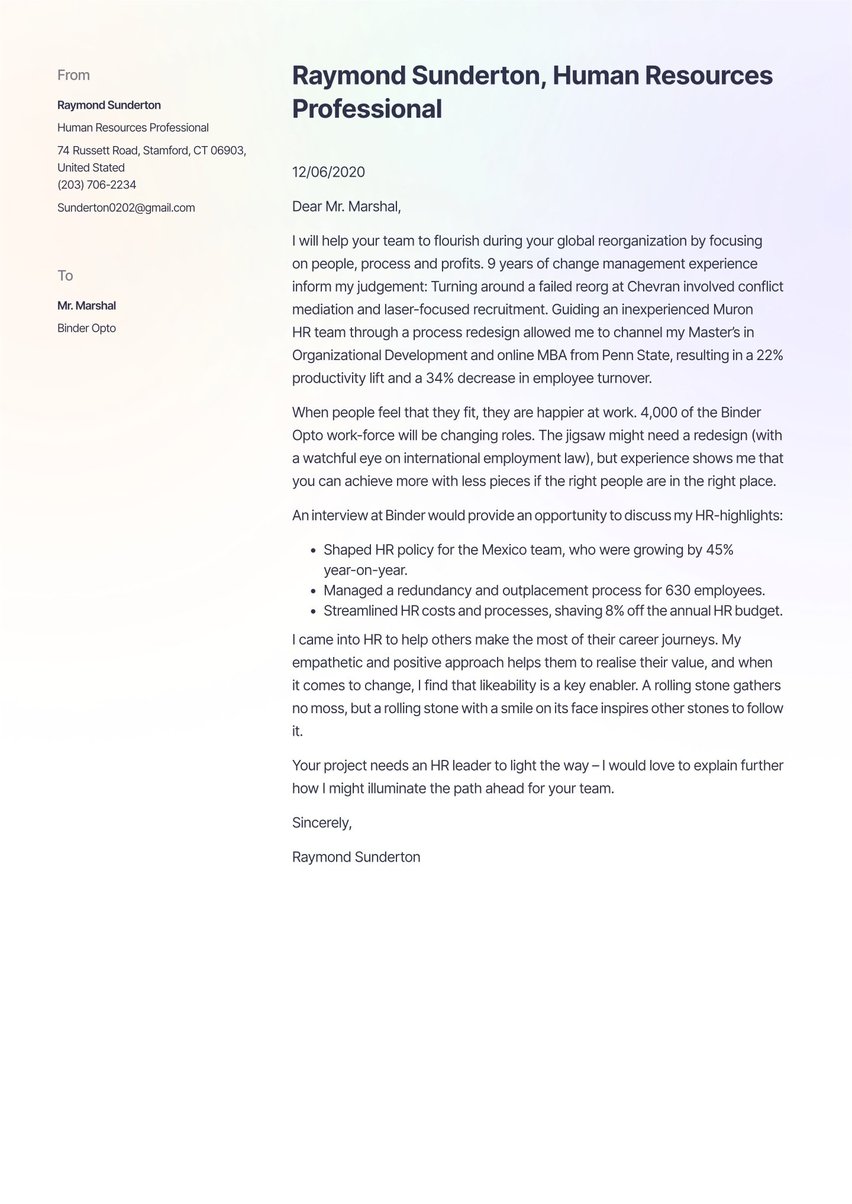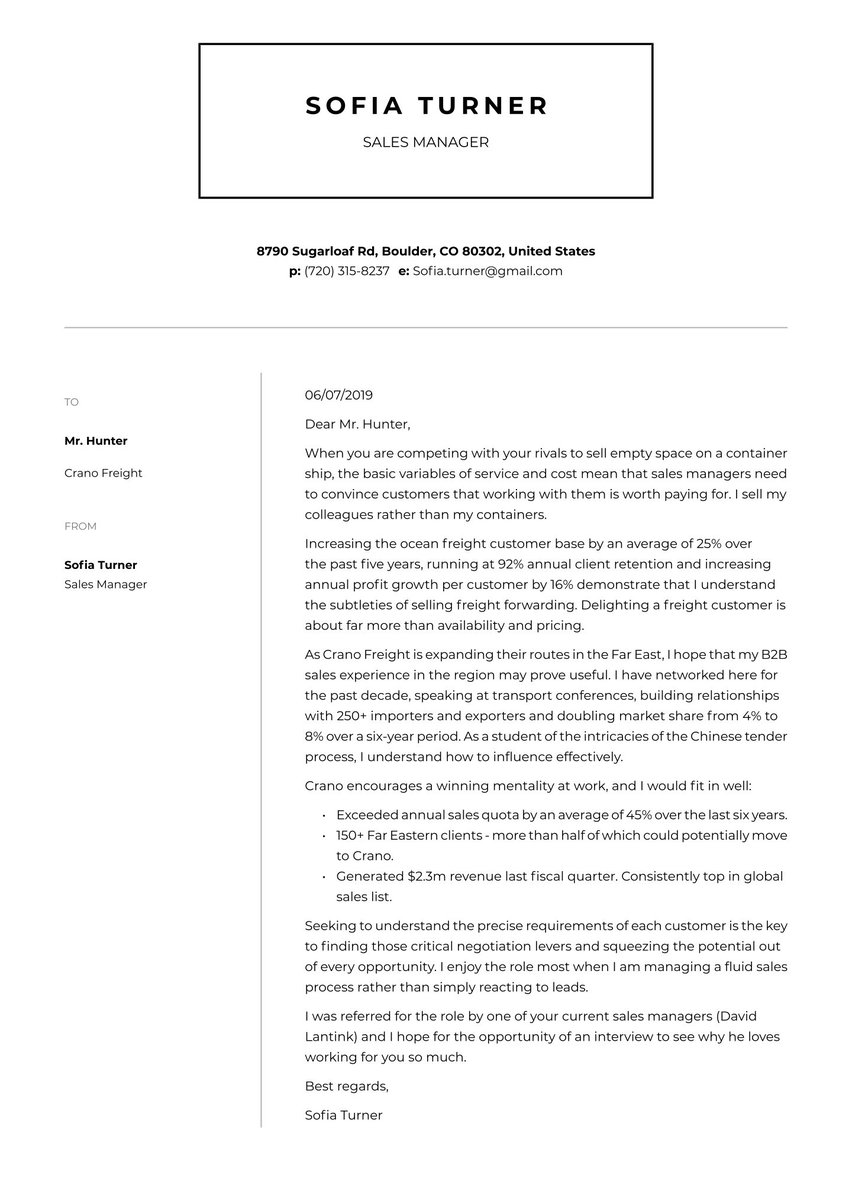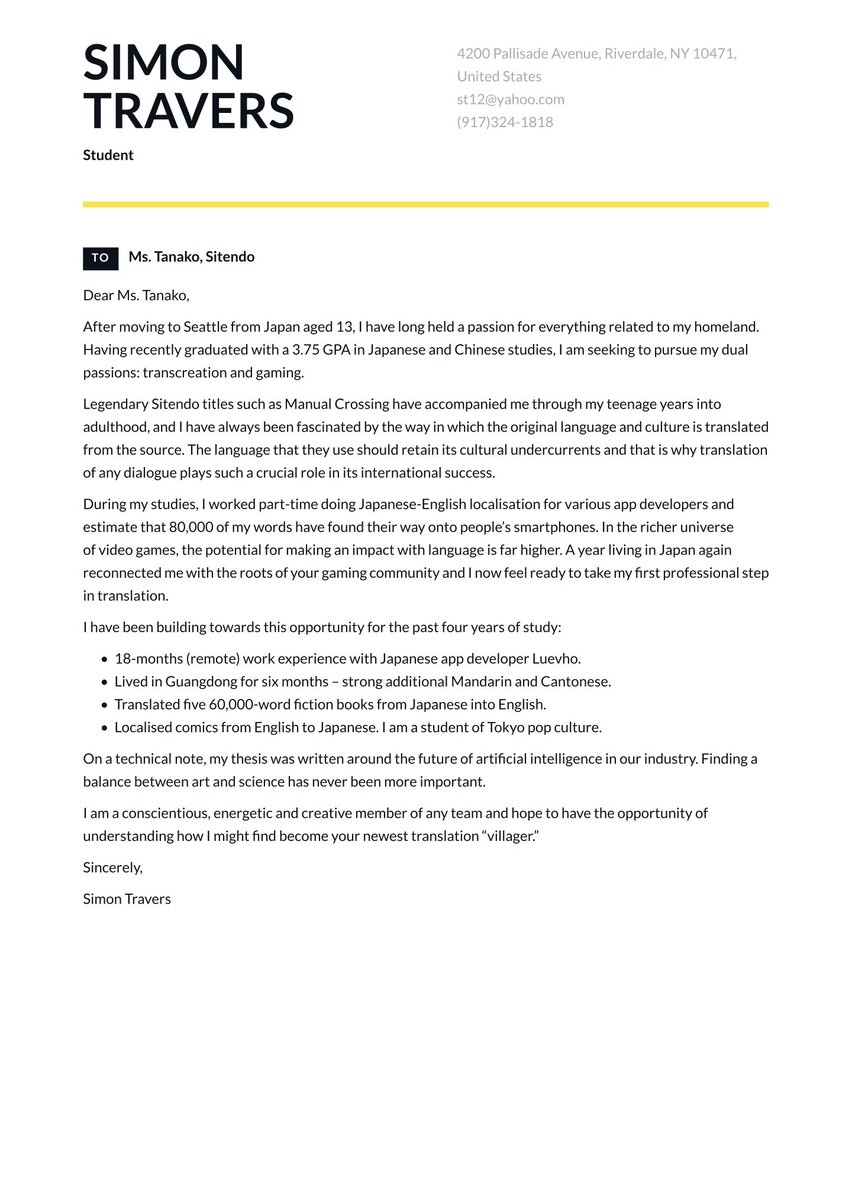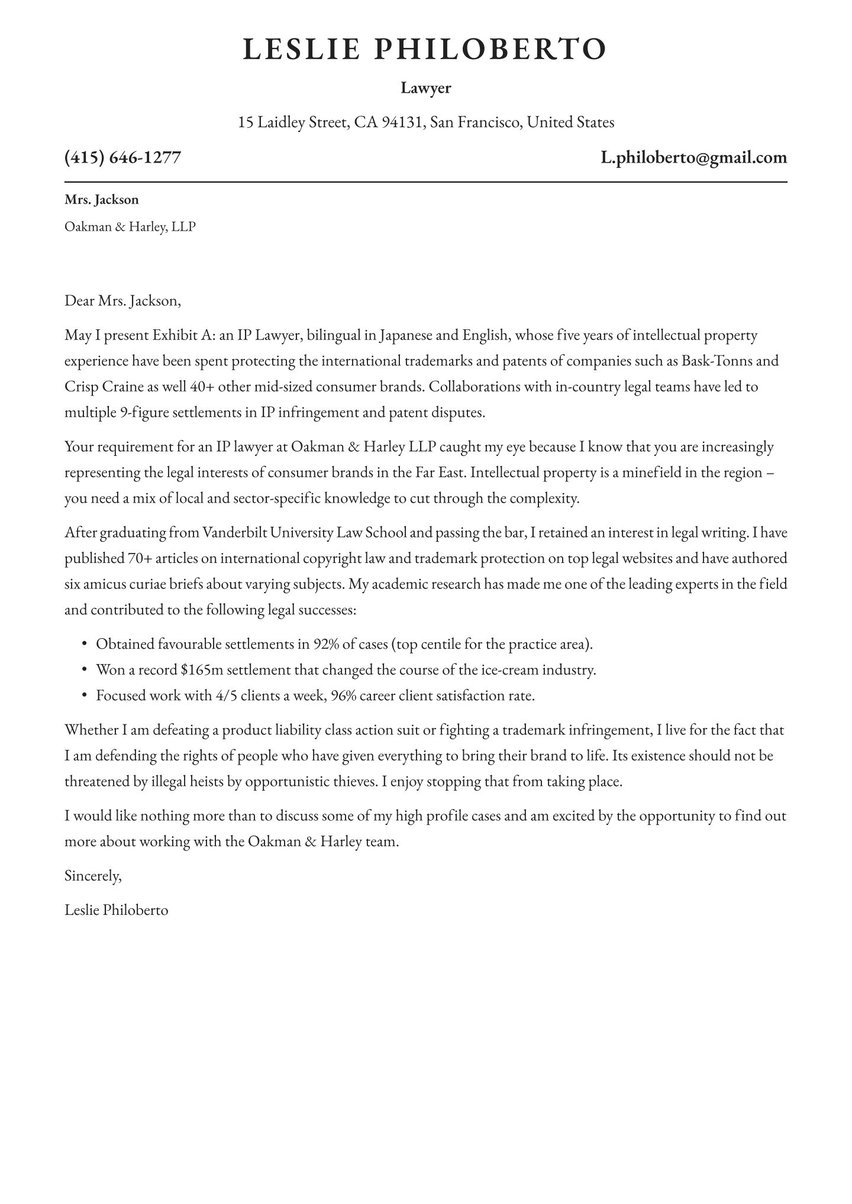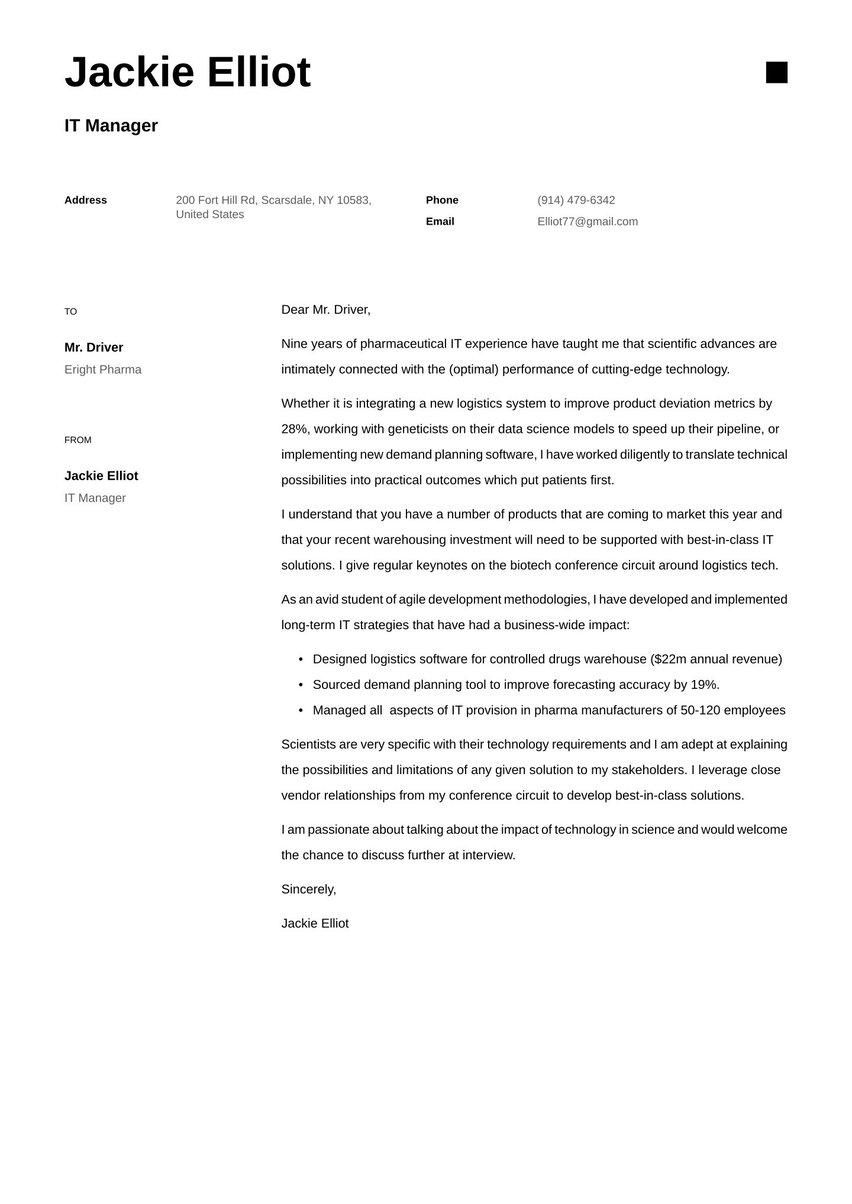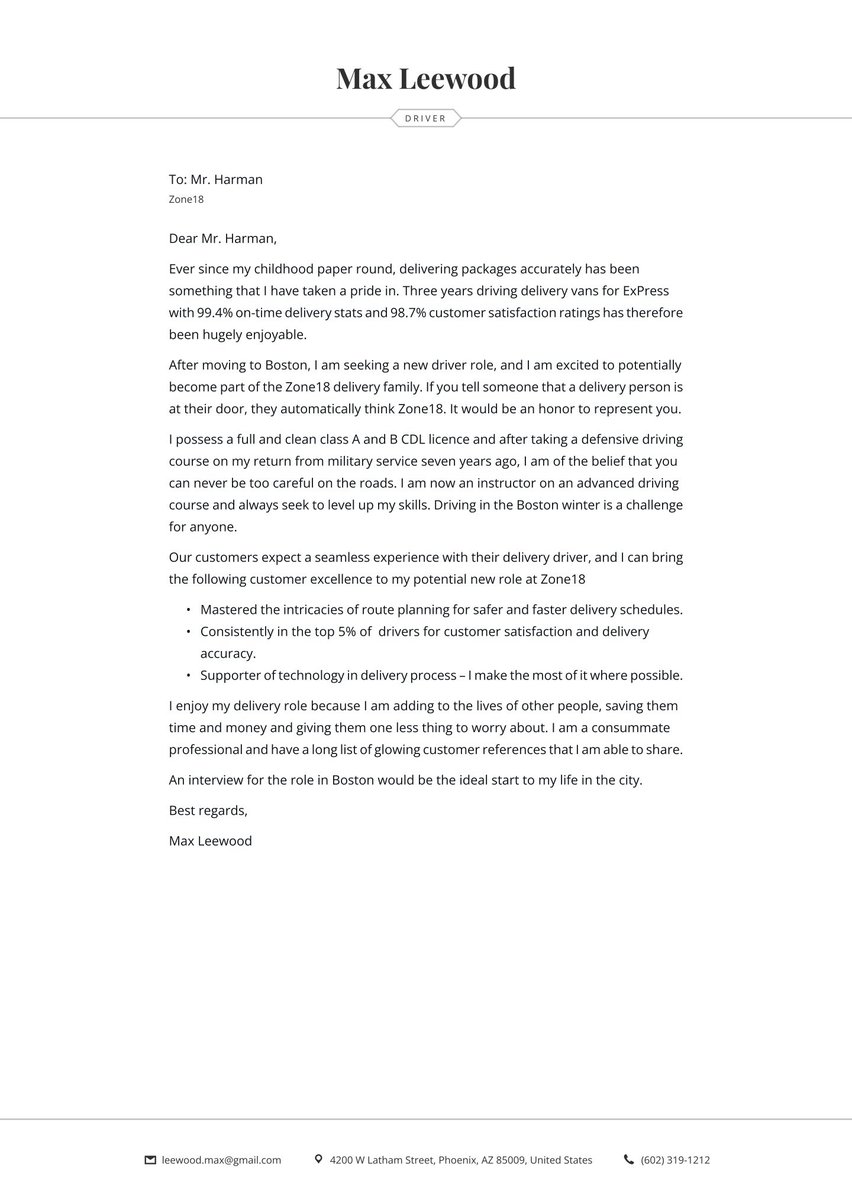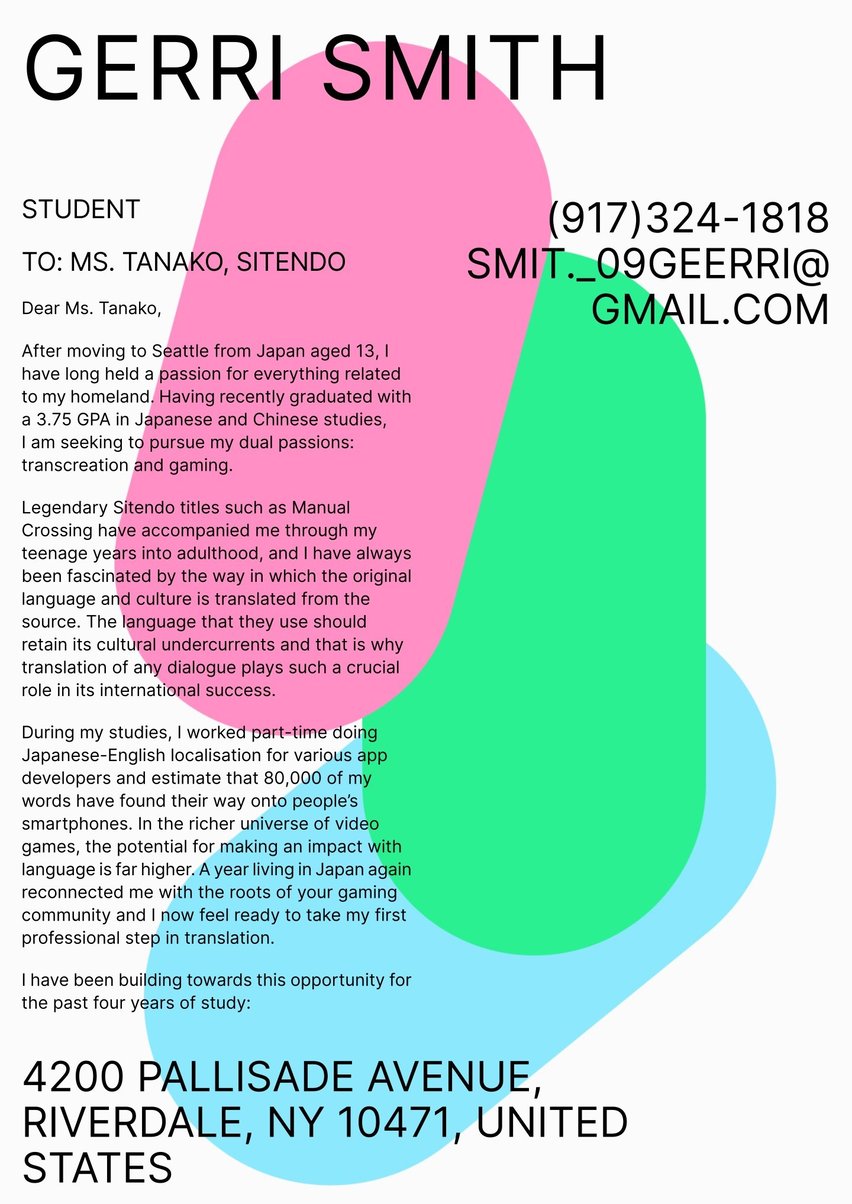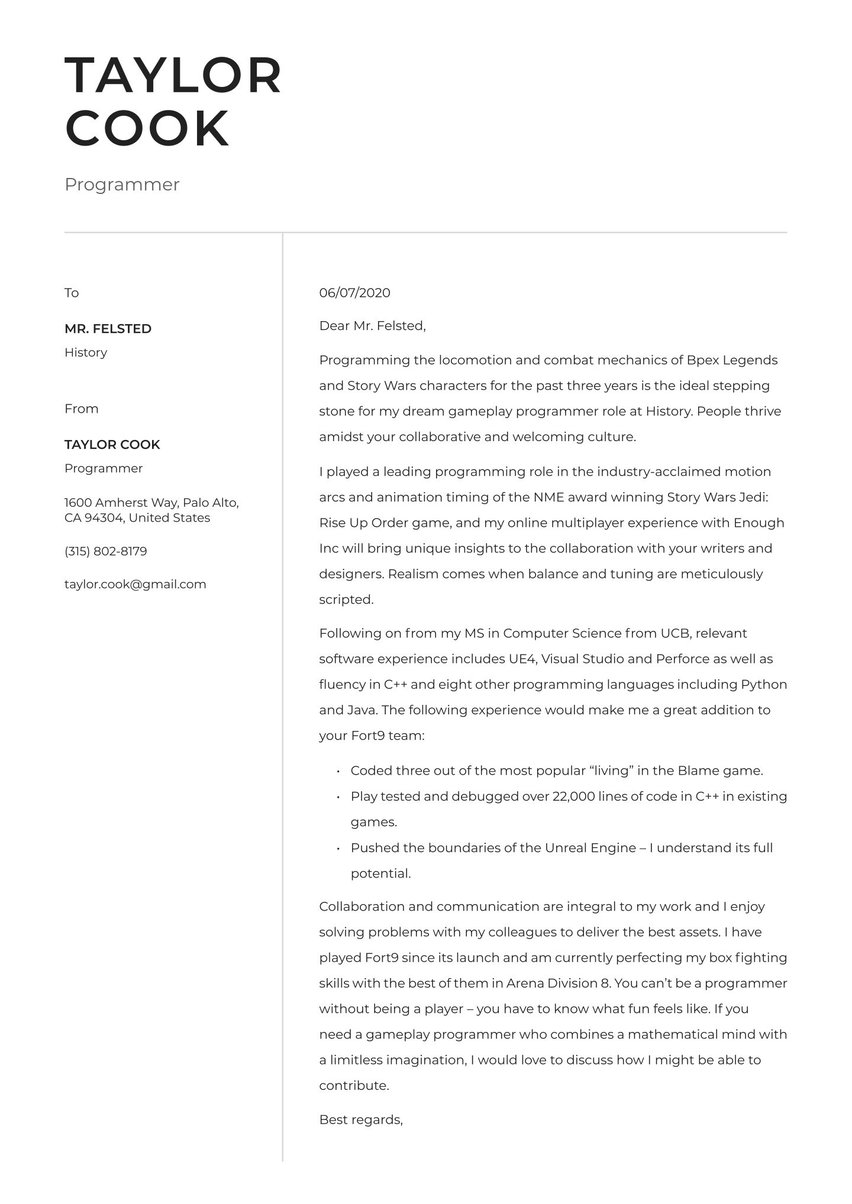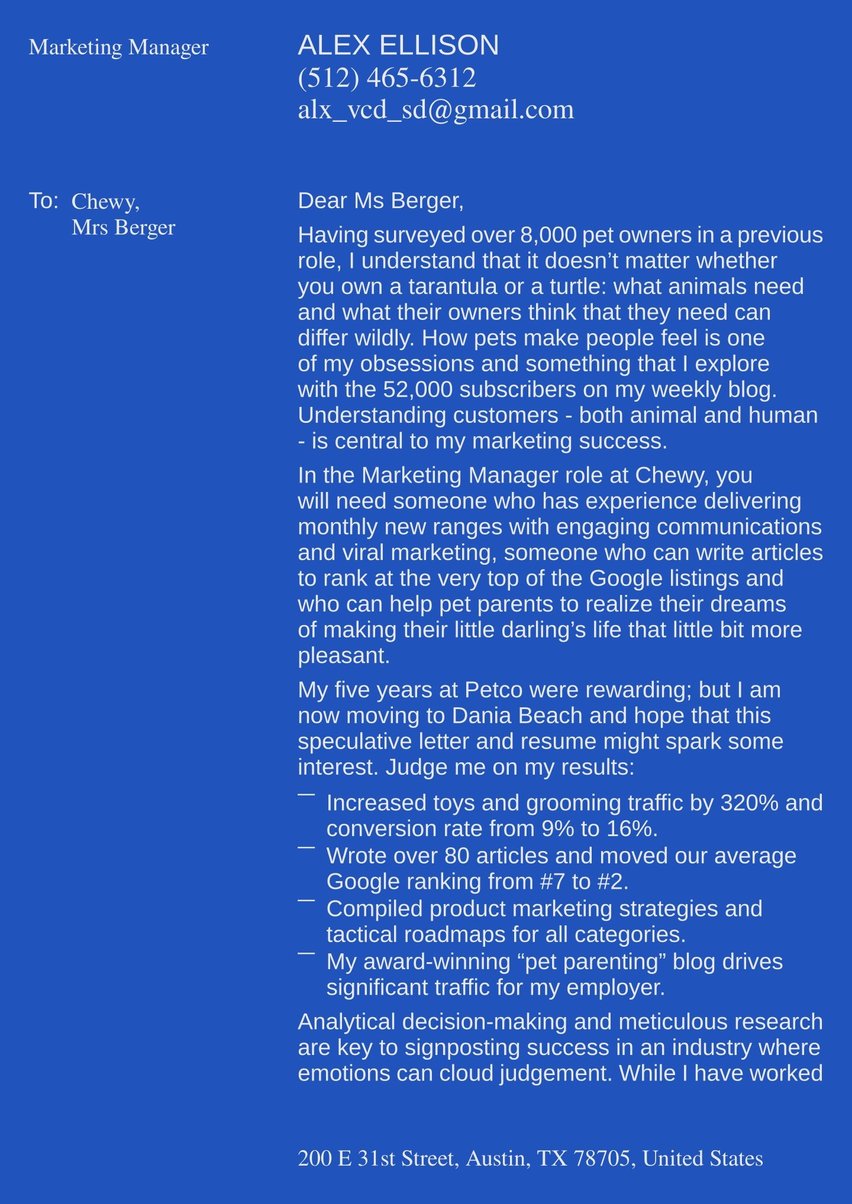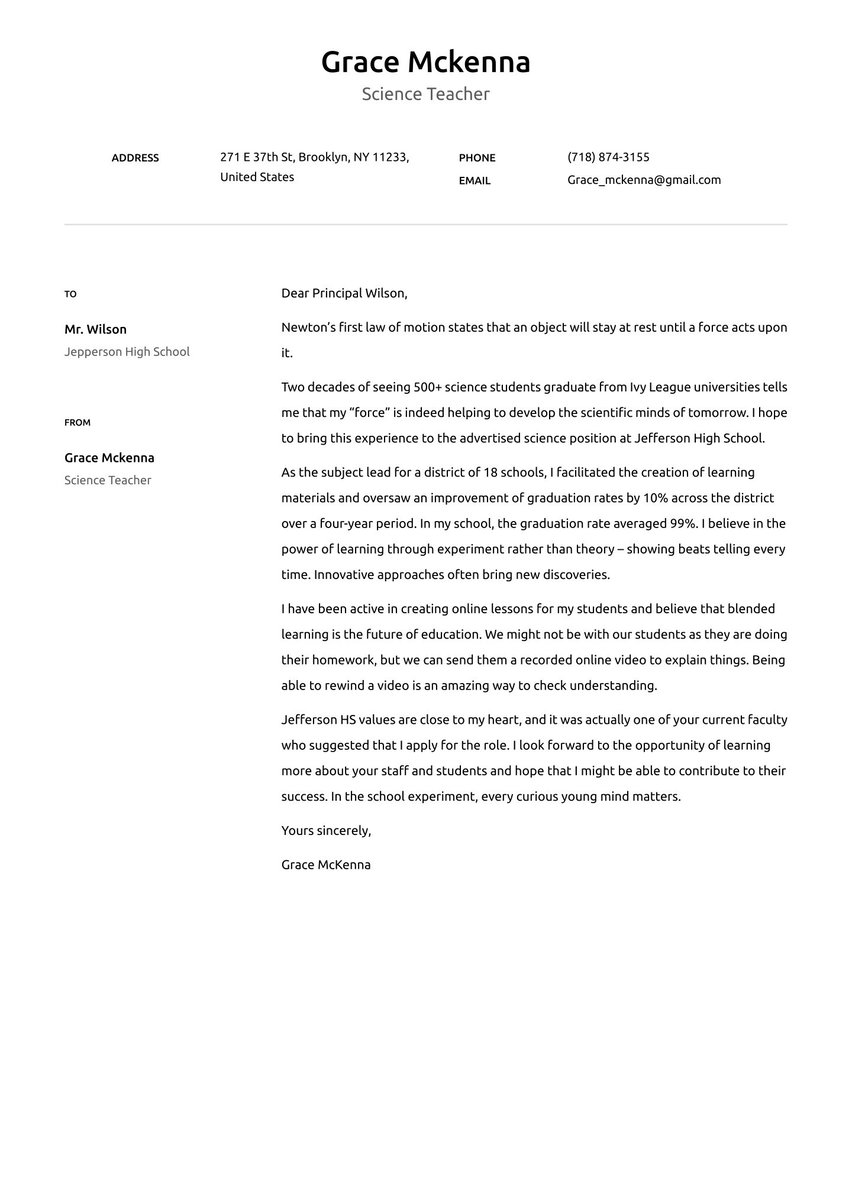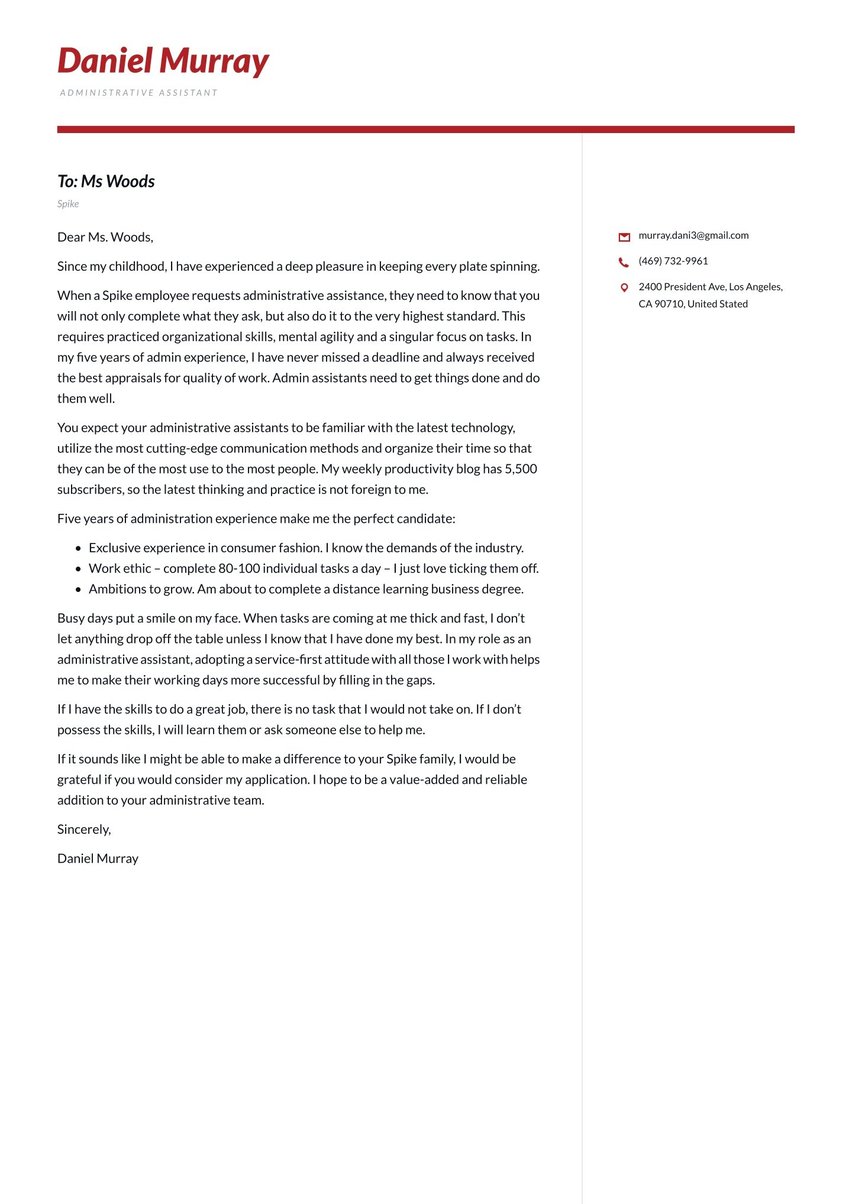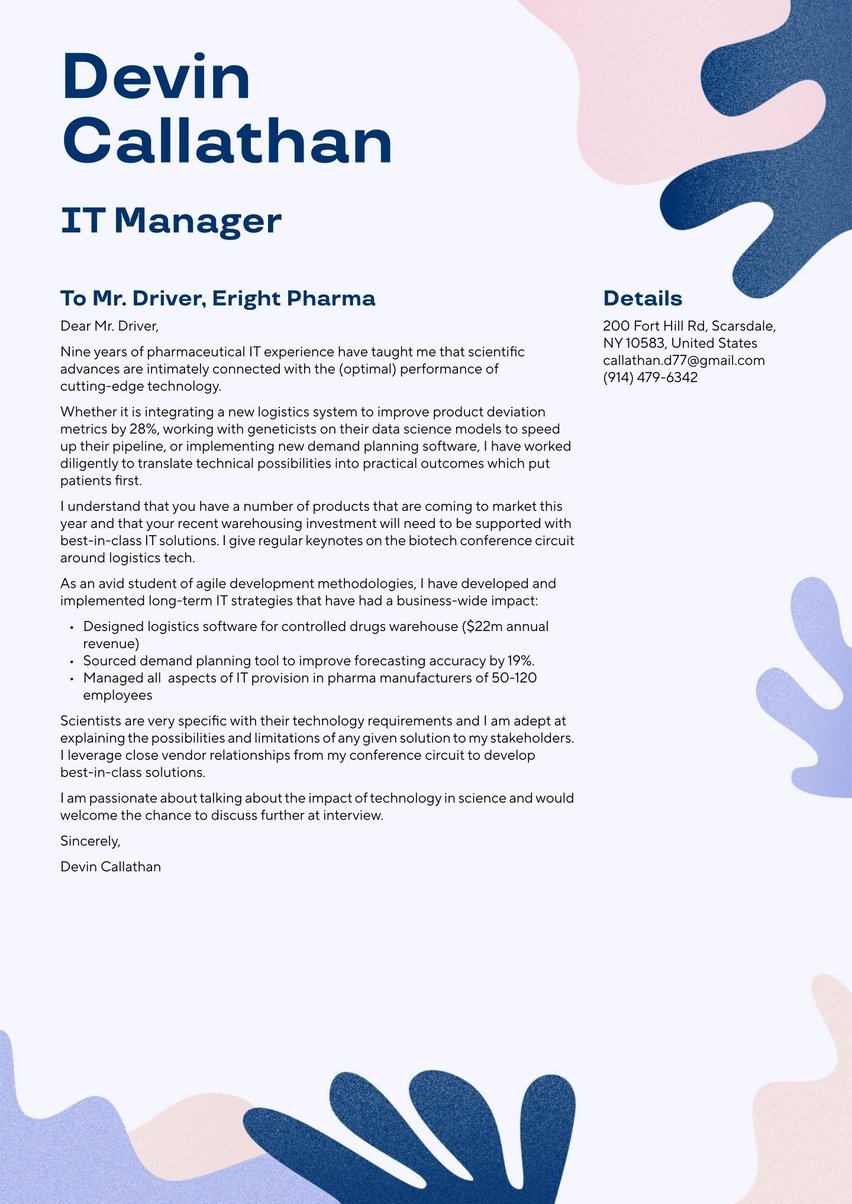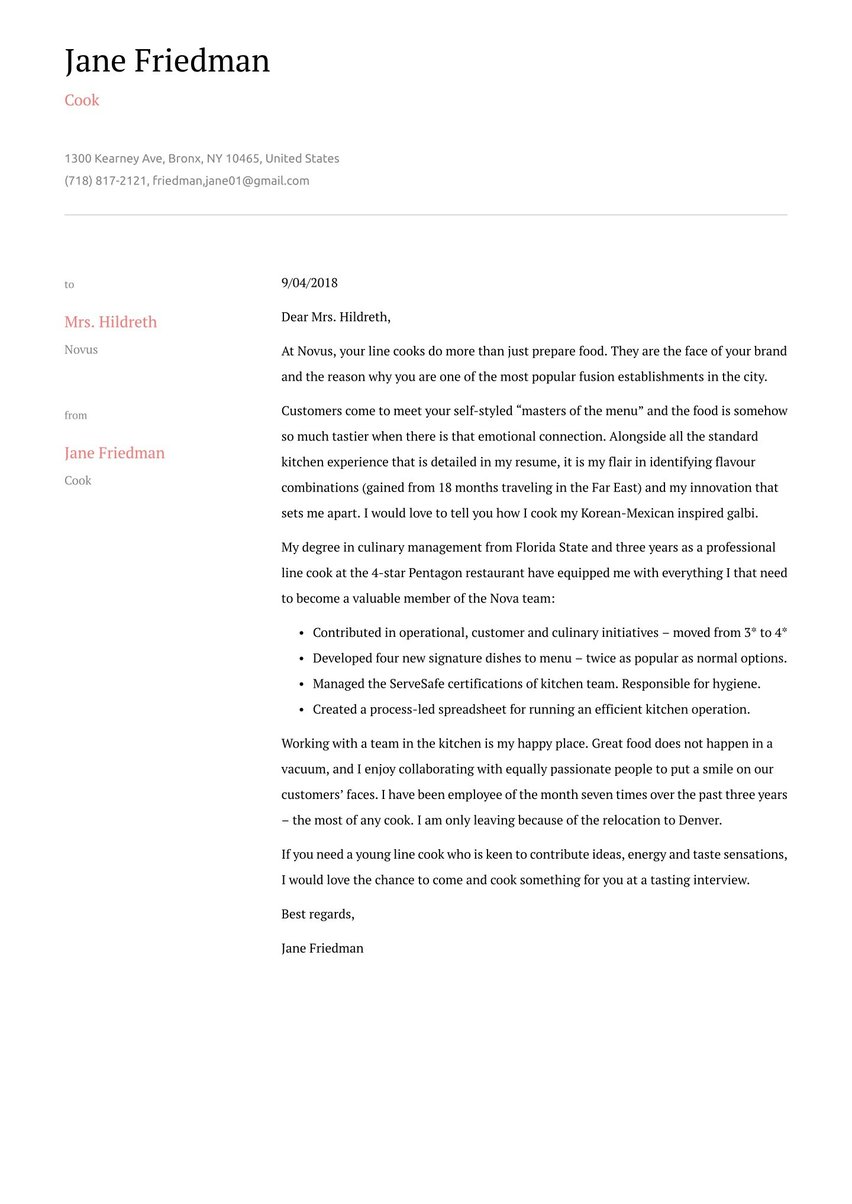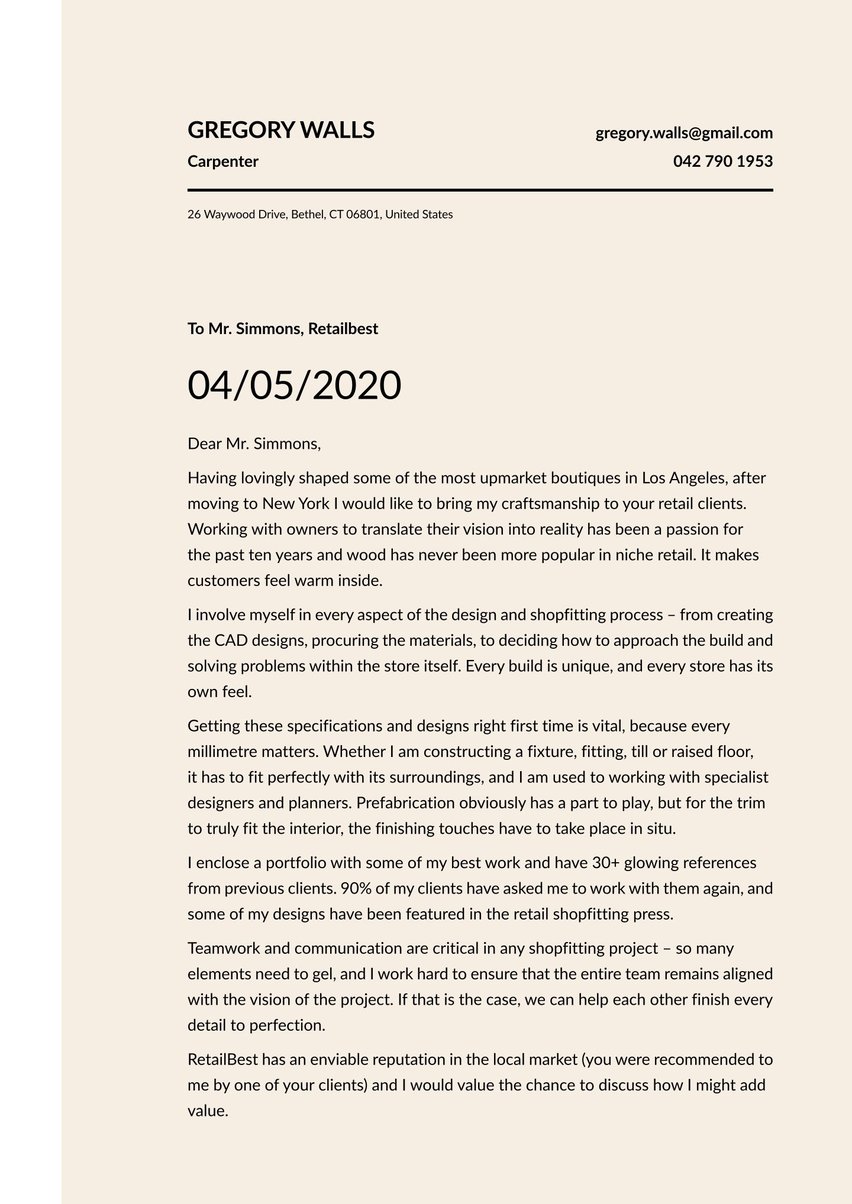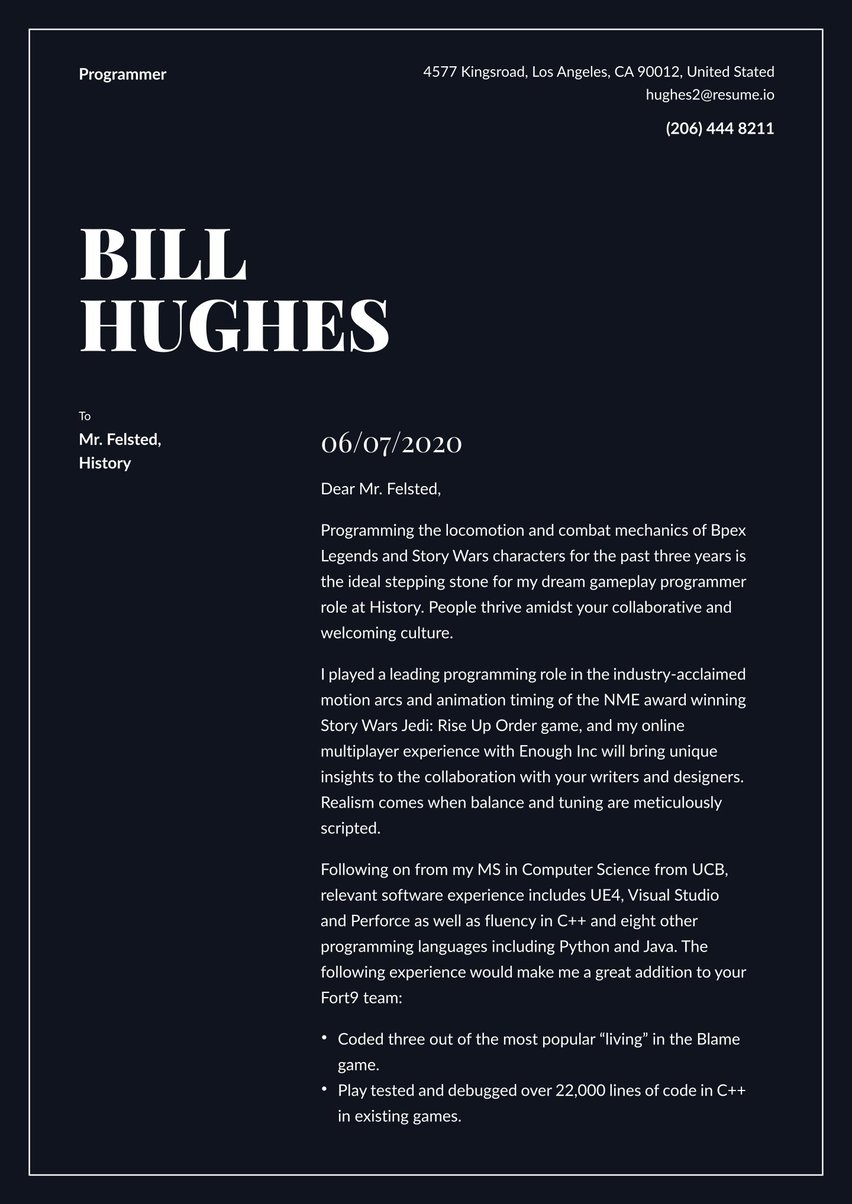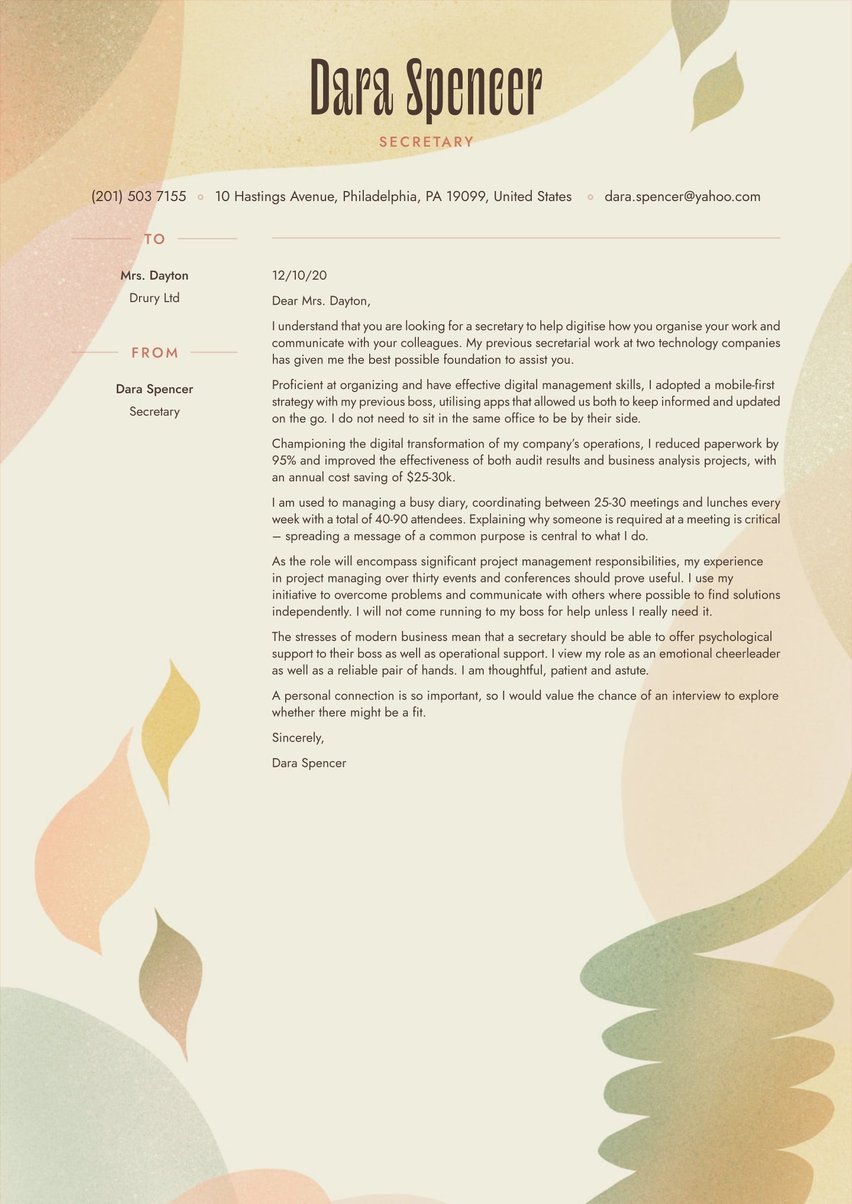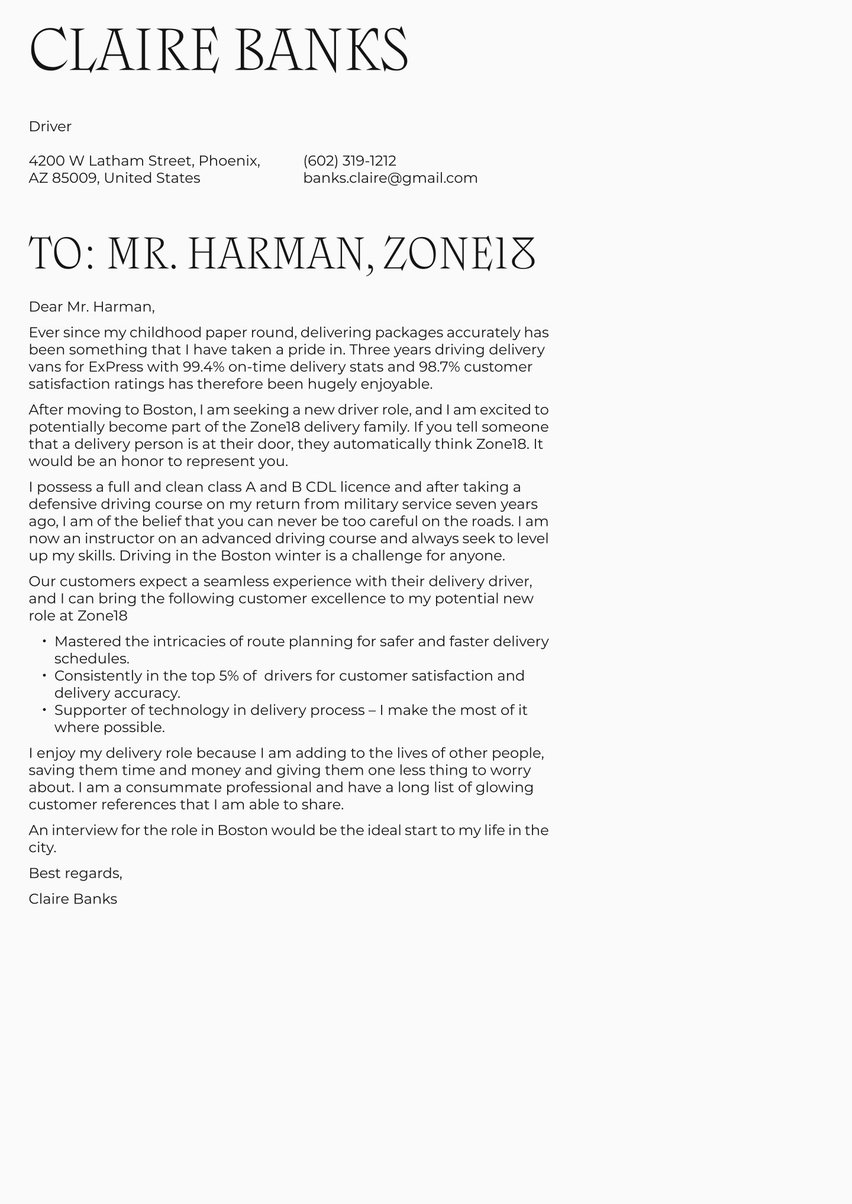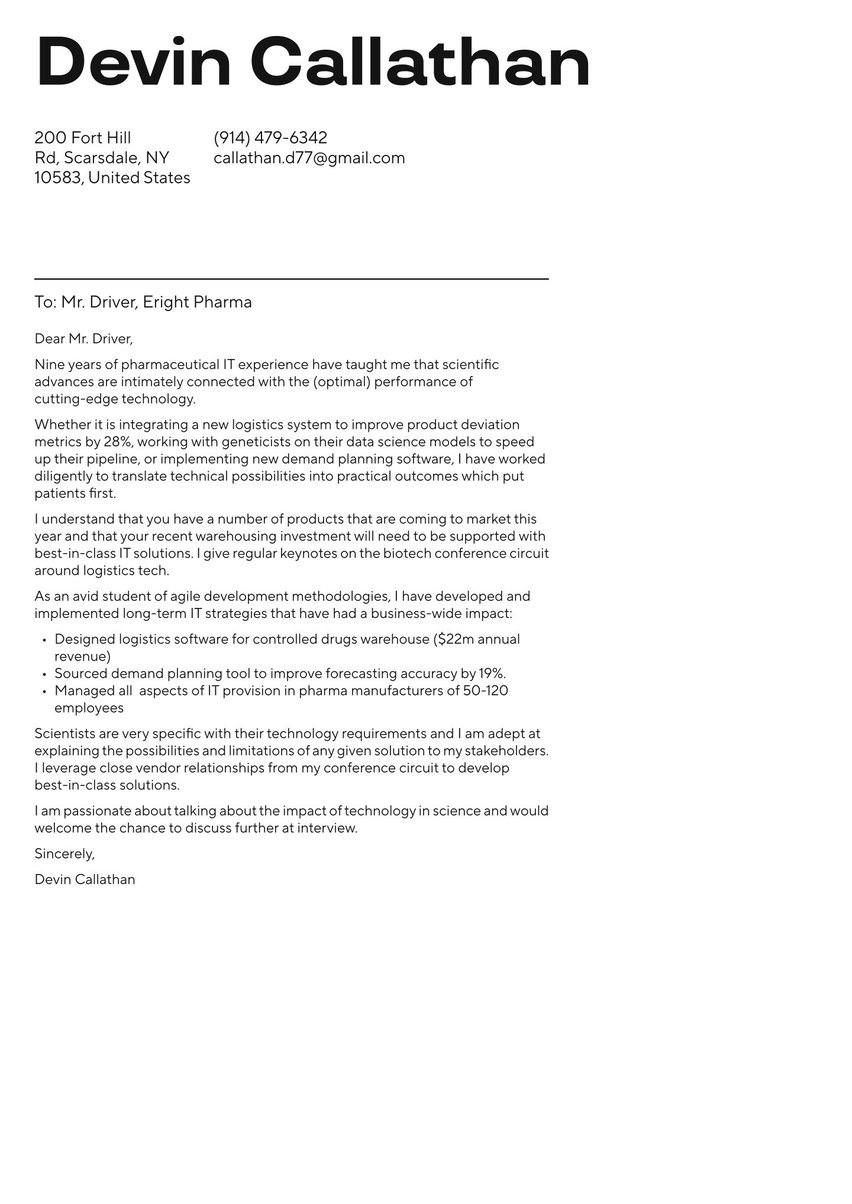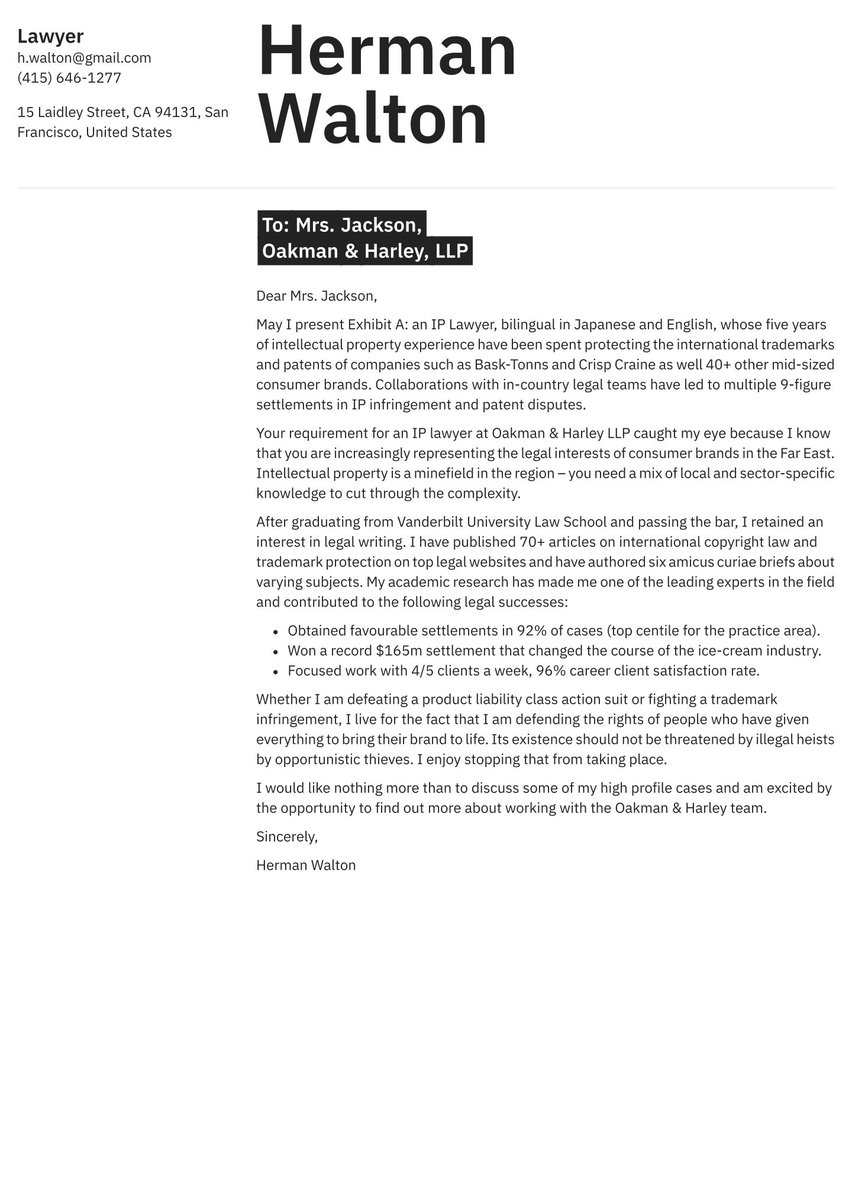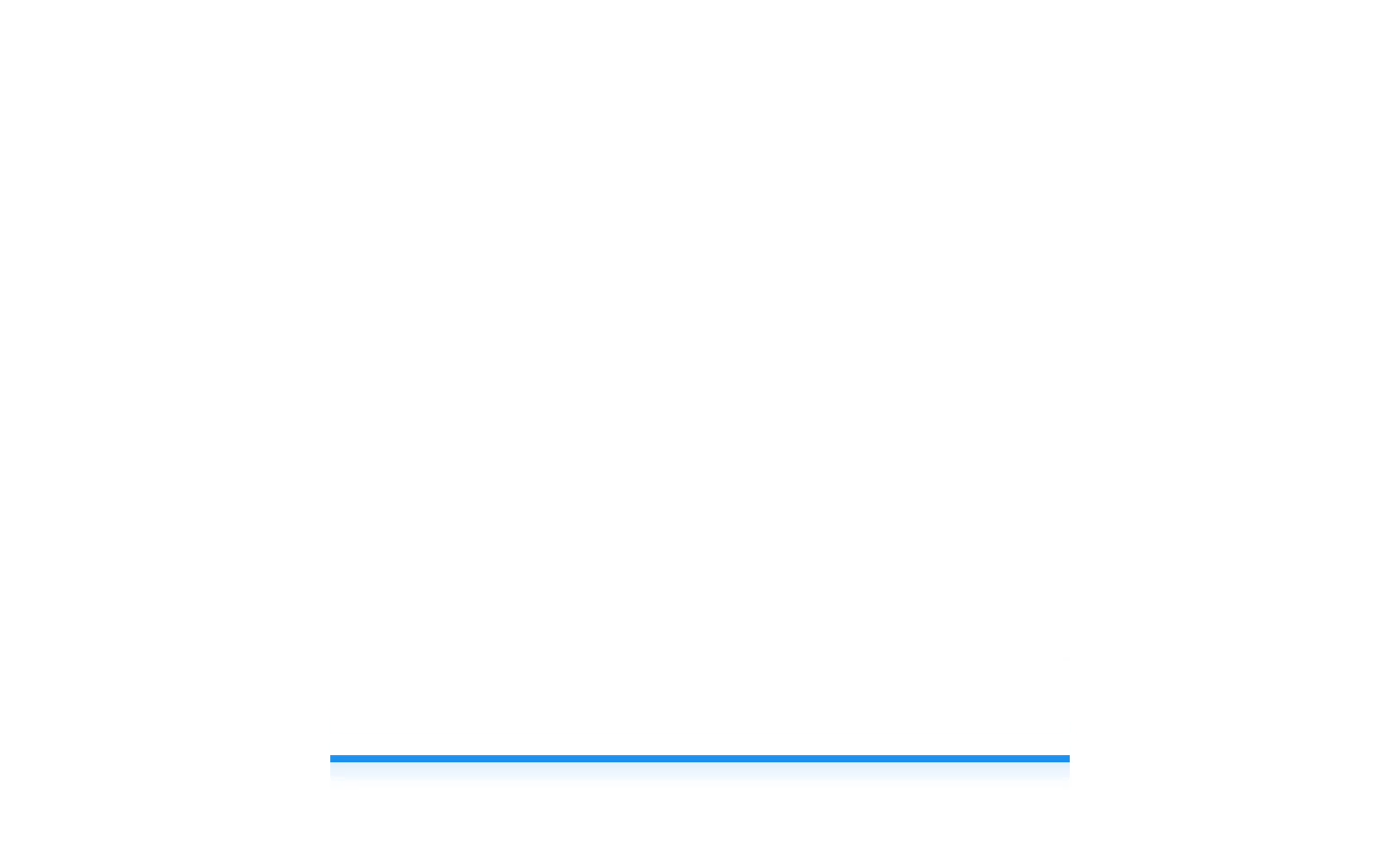Hiring managers are searching for three things in their HR department: professionalism, organization, and reliability. So, when you sit down to write your entry-level HR cover letter, you need to neatly tick each of those boxes. It’s not merely about proving that you can get the job done. No, you need to showcase that you have the personality for the role too.
Whether you’re hiring and firing or dealing with interoffice conflict, you have to be a master of managing people. Having an approachable, measured personality is a must whether you’re disciplining an employee or telling them they bagged a promotion. For that reason, it’s important that your characteristics shine brightly through your cover letter.
Here at Resume.io, we help you maximize your chances of landing your next job. Our library of 180+ cover letter examples — and accompanying writing guides — is a clever place to start. In the following writing guide and corresponding entry-level HR cover letter example, we will be covering these core subjects:
- How to choose the best format for your entry-level HR cover letter
- Expert writing tips on how to add a dash of pizzazz to your application
- What approach to take when dealing with each cover letter section
- The common mistakes that could lose you that all-important interview
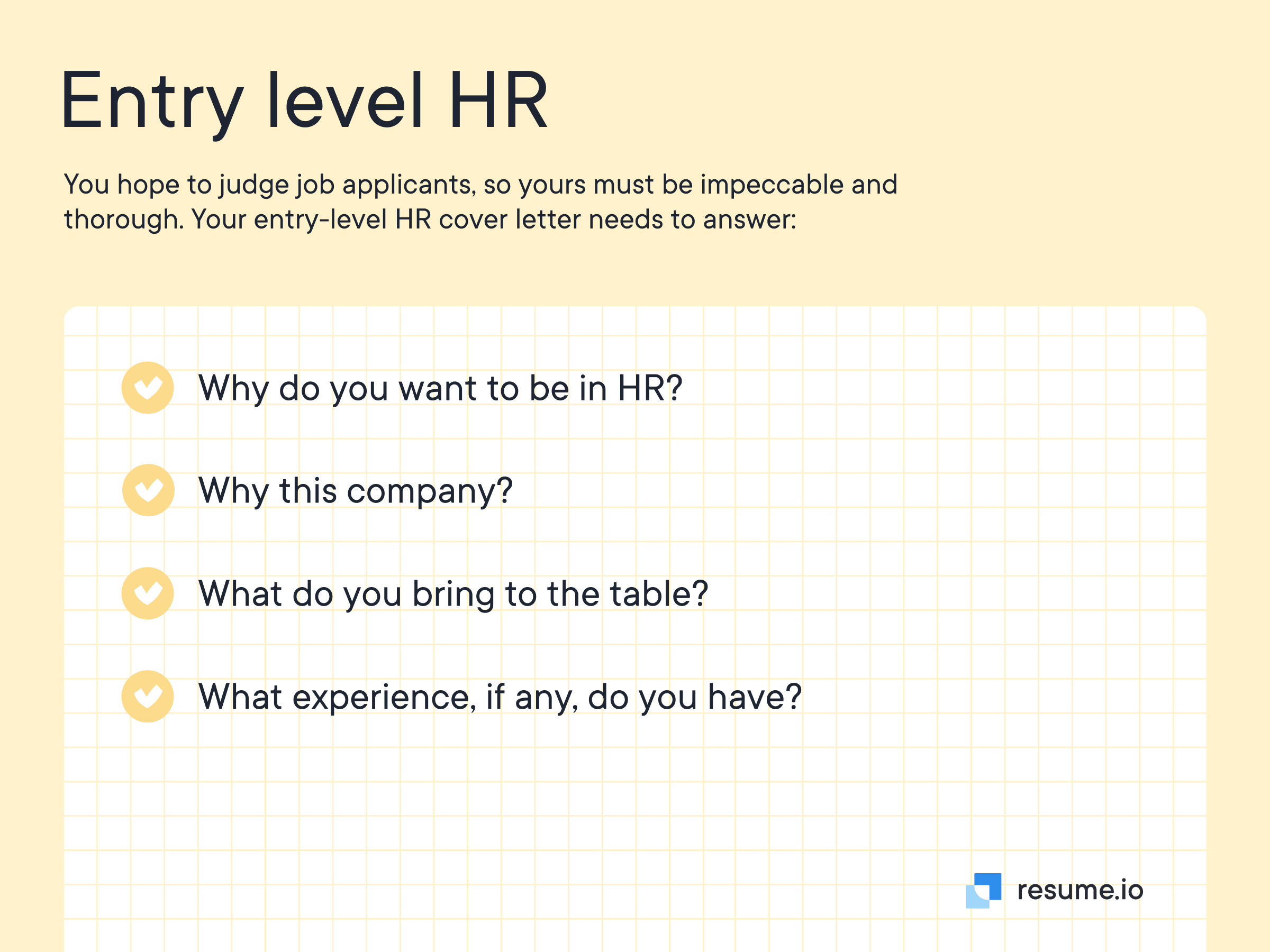
Best format for an entry-level HR cover letter
First up, let’s talk about how you should structure your cover letter. Keep in mind it’s likely an HR professional who read your application. They will expect you to know your stuff — i.e. understand the standardized cover letter format, as follows:
- The cover letter header
- The greeting/salutation
- The cover letter intro
- The middle paragraphs (body of the letter)
- The ending paragraph of your cover letter (conclusion and call-to-action)
Sticking to this structure means that your cover letter will stay on point. You should approach it in a methodical way, dealing with one section at a time. That way, the end result will be a cover letter that flows naturally from one subject to the next. If you want some general advice on how to write a cover letter, you can check out our full guide here.
Dear Ms. Simmonds,
Having recently completed my degree in Human Resource Management, I am looking for my first role in HR. I am seeking a generalist HR role, with my core interest in the areas of recruitment and employer branding.
Having written my dissertation on how an employer’s brand impacts their recruitment operation, I would be delighted to work for Garner. Your consistently high rating on the “Best Places to Work” list is well deserved. I admire how you listen to your employees and act on feedback – your reputation on social media comes from the resultant employee advocacy. With over 80k followers on socials, I would hope to support this trend.
I am keen to gain practical experience in all aspects of HR and recruitment. My internships during university taught me that practice is very different from theory – your training program is world-class and I look forward to soaking up the knowledge. As an HR assistant, I would hope to get involved in the operational aspects of candidate sourcing and recruitment marketing. I am a creative person who always seeks to find bespoke solutions.
During my internship at Ping, I worked on a project to recruit a 50-person team for a new office in Seattle. The time scales were tight and the work demanding. 85% of the team was still with the company after two years and the office beat its budget by 42%. I love how the quality of recruitment (and HR in general) can be measured by employee performance.
I am excited to find out more about the role during a potential interview. Harrison Waverley recommended me for the role – we worked together at Ping.
Sincerely,
Jenny Beckworth
Looking for some more inspiration? We’ve got you covered. Take a look at our selection of related cover letter examples below:
- HR cover letter sample
- HR assistant cover letter sample
- Administrative assistant cover letter example
- Office assistant cover letter sample
- Administrative officer cover letter sample
- Office clerk cover letter example
- Office manager cover letter example
- Office administrator cover letter sample
- HR manager cover letter example
Cover letter header
Now, let’s deal with the red tape. The cover letter header sits at the top of the document. It contains your name, email, and phone number. Sure, it’s not the most exciting part of your application, but it matters. You need to ensure that the hiring manager can contact you. Ensure that this part of the cover letter is clear, easy to read, and stands out.
Cover letter greeting
The “To whom it may concern” opener is out. That cover letter greeting went out of style along with shoulder pads in the 1980s. Instead, you need to opt for a more personal approach. Show that you’ve done your homework by addressing the hiring manager directly, e.g. “Dear Mr. Alwyn.” Alternatively, you can use the generic “Dear ______ team.”
Cover letter introduction
Now that you’ve said hello to the reader, it’s time to start selling your HR skills. The tone is as important as the content here. You need to let the hiring manager know that you are professional and people-orientated. Adopt a bright and sunny voice to grab their attention.
Find your unique selling proposition (USP)
In the business world, a ‘USP’ is the main thing that sets a product or service apart from its competitors. Put simply, it’s what sells the company to consumers. So, what’s yours?
When you’re writing an application, you’re selling your skills and experience to the reader. What makes you different from other candidates? It might be your excellent people skills or your knack for conflict resolution. Whatever it is, lead with it here.
If you’re having trouble deciding what to write, take a look at the introduction in our cover letter example.
Dear Ms. Simmonds,
Having recently completed my degree in Human Resource Management, I am looking for my first role in HR. I am seeking a generalist HR role, with my core interest in the areas of recruitment and employer branding.
Cover letter middle part (body)
You’ve got the reader’s attention. The middle paragraphs of cover letters contain the main information you want to share with a hiring manager. Since you’re applying for an entry-level role, chances are that you don’t have a ton of experience. So, focus on the experience that you do have and the crucial lessons you have learned thus far.
One approach is to include anecdotes about the experiences you’ve had and the results you’ve achieved. For example, you may want to share a quick story about how you onboarded new staff members at your previous job. You don’t want to go over the 300-word mark so be selective in the snippets you decide to use.
Having written my dissertation on how an employer’s brand impacts their recruitment operation, I would be delighted to work for Garner. Your consistently high rating on the “Best Places to Work” list is well deserved. I admire how you listen to your employees and act on feedback – your reputation on social media comes from the resultant employee advocacy. With over 80k followers on socials, I would hope to support this trend.
I am keen to gain practical experience in all aspects of HR and recruitment. My internships during university taught me that practice is very different from theory – your training program is world-class and I look forward to soaking up the knowledge. As an HR assistant, I would hope to get involved in the operational aspects of candidate sourcing and recruitment marketing. I am a creative person who always seeks to find bespoke solutions.
During my internship at Ping, I worked on a project to recruit a 50-person team for a new office in Seattle. The time scales were tight and the work demanding. 85% of the team was still with the company after two years and the office beat its budget by 42%. I love how the quality of recruitment (and HR in general) can be measured by employee performance.
How to close an entry-level HR cover letter (conclusion and sign-off)
When you’ve said all there is to say, it’s time to sign off. The closing lines of your cover letter are crucial if you want to make a lasting impression. You could include a quick call to action (CTA), adding that you’re looking forward to the prospect of a formal interview. Leave things on a positive note and channel your inner optimism when concluding.
I am excited to find out more about the role during a potential interview. Harrison Waverley recommended me for the role – we worked together at Ping.
Sincerely,
Jenny Beckworth
Entry-level HR cover letter with no experience
If you’re a complete newcomer to HR, you won’t have much experience to include in your cover letter. However, you can still win over a potential employer by talking about:
- Your other work experience (prior roles, voluntary positions, etc.)
- Your education and what it taught you about HR
- Why you are passionate about the human resources sector
- The skills that you already have in tow, and how you learned them
- Where you see yourself in the future and how that fits with this company
Hiring managers are on the lookout for enthusiastic candidates when filling these roles. Be sure to share your gusto when writing your entry-level HR cover letter.
Basic mistakes in an entry-level HR application letter (and how to avoid them)
Ready to sign, seal, and deliver your entry-level HR cover letter? To ensure that you’re sending out the right message to the potential employer, avoid these common mistakes:
- Spelling and grammar errors. HR professionals send out formal emails, contracts, and letters. If those documents are littered with basic mistakes, it makes the business look shoddy. Show the reader that you have an eye for detail. Make sure you proofread your cover letter before you click that ‘send’ button.
- A cold and unfriendly tone. Yes, this is a professional document, but that doesn’t mean you should sound like a robot. Make sure you put the ‘human’ in human resources here. Adopt a formal but amicable tone when writing your cover letter.
- Too much information! If you have had an interesting life or career, you may be tempted to cram your cover letter full of details. Stop and consider what the hiring manager needs to know about you. As a rule, keep the letter to around 300 words.
Key takeaways
- HR workers are often the face of a business. Show that you can be friendly, professional, and approachable in your cover letter.
- No time to lose? Take all of the hassle out of creating your application by using one of our field-tested cover letter templates.
- Tailoring your cover letter to the company at hand is a smart way to get ahead.
- Leave things on a positive note! Make sure that your approach is optimistic when closing your entry-level HR cover letter.


